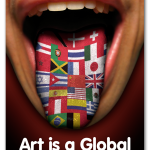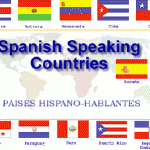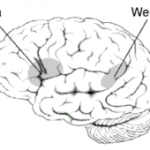Calling Back Home
The person I called was my uncle because he is often curious about my new dorm life. Our conversation was very casual and consisted of very few English words because we mainly communicate in Chinese. He asked me ” How are you doing?” instead of “What’s up?” which was expected because I think only people of similar age would say something like that since it is quite informal. He also says soda instead of pop and he does not use the word “hella.”
The set of words such as pool and pull , feel and fill sound completely different to me, whereas collar and caller sound the exact same. I feel that although many words in the English language sound similar to one another, as long as we use it in a correct sentence, we will be able to differentiate the meaning of it.
Ask a Family Member
So I decided to talk to my parents about their terms that they use. Heres what I came up with.
Bucket or Pale?
Both say Bucket. Mom is from New Jersey and she said she used to say Pale when she was younger.
Hows it going? How are you?
Both say how’s it going to friends, and how are you to co workers.
Soda or Pop?
Soda!
Nobody says Hella…thank you Mom and Dad.
Some New Slang… My Dad says “redonkulus” it’s a bit annoying, he uses it way too much!
My mom’s response was… well I mean I’ve heard of twerking.
Slang they’ve heard me use: Ratchet, Crankin’, dope
Vowel Practice:
A) Pool/Pull- Different
B) Bat/Bad/Bot- Same
C) Feel/Full- Different
D) Caller/Collar- Same
It’s interesting because both of my parents are originally from the East Coast. My Mom is from New Jersey and my Dad from Pennsylvania. They have been living in Southern California now for upwards of 20 years. However it seems strange to me that my Mom was familiar with the term pale from her childhood. I have never heard her use it with me! It was so funny when I was talking to them because as soon as I brought up some slang from my childhood I asked them if there was any slang from when they were younger. They both had to think but they came up with: groovy, wicked, and trippy. How Funny :)
Gen s100: Calling home
I called my mom for this assignment. The way she talks is Spanglish. She uses broken English. During this call, I noticed that sometimes when she is speaking, she is using words in past tense rather than present tense. Her accent is a Spanish accent, it isn’t that deep. Since, my mom is from a different country her use of slang is not up to date. However, is understands slang when I use it. She knows “what’s up?” is a substitution for “how are you?’. Little things like that she understands, but not words like: ratchet or turned up. On how she speaks, I really didn’t find anything unique with the words she uses. She really only talks to me in Spanish and uses Spanish slang. However, when she does speak English she tries to pronounce her words more clearly.
A) She uses the word bucket.
B) When I called, she used the phrase “How are you?”
C) She says the word soda, when I asked her.
D) She doesn’t know what “hella” meant.
I really didn’t hear anything different in her English slang. However, with her Spanish slang there are some words that I probably never heard of and had to ask her.
a) The Pool/Pull, they sound different to me. Pool sounds like I an saying “oo” and Pull is more short and more deep, like I am saying “uh”.
b)The words Feel/Fill do not sound the same. The word “Feel” sound softer than “Fill”
c) The three words sound the same to me.
d) Caller/Collar sound the same or very similar.
Parents Back Then and Nowadays
I called my dad and he has a mild British accent that I don’t really notice, but everybody else does. He says:
- Both pail and bucket
- What’s up, what’s good, how’s it going and how are you
- Soda
And of course, he says… HELLA! (I’ve taught him well)
He also tries to say ratchet and all the slang words that my friends and I use to try and be hip, but to also bother us.
Some slang words that he claimed to have used but is still used back then are:
-Brilliant
-Bog…Toilet
-Fab…Fabulous
In London, many of the people who live in the East End speak with a Cockney accent (which is considered “ghetto”) but here’s some slang that many people from London used back then as well:
-Apples and pears…stairs
-Dog and bone…phone
-Whistle and flute … nice suit
a)Pool/pull sound similar but have a slight difference if you pronounce the vowels correctly.
b)Feel/fill sound similar but the double e has a longer pull on the word, the i cuts it short.
c)Bat/bad/bot all sound different.
d)Caller/collar sound exactly the same to me but if you know the spelling and context you know the difference.
Gen S-Calling Parents
I called my parents and they only said a few things that surprised me. They greeted me by asking, “How are you?” instead of “What’s up?” My dad also uses the word ‘pail’ instead of ‘bucket.’ Otherwise, their speech was normal.
Language discussion with mama bear
I called my mother after class and told her the my assignment. She’s the swedish one of the family and she gave me a few english slang words she used in the 80’s. In Sweden, when you say hello, usually you say “hej hej” or “hey hey”. When you say goodbye you say “hej hej”. It’s weird because when I lived in Sweden I remember saying goodbye and then turning my back, but then they would say “hej hej” and I would turn around confused. Funny stuff.
Blog 1
Blog 1
Growing up my parents raised me to speak English because they didn’t want me to go through their difficulty they experience when trying to communicate in English. My mom is a native speaker of Tagalog while my father speaks in Pidgin/Hawaiian slang and little Japanese but either way their English is considered poor. As years past my parents realized they made a mistake of just teaching me English and found out it was better to be accustomed to other languages. They began speaking to and teaching me in their native tongue but they were a bit late. I’m able to understand Tagalog but have difficulty responding back and I just rejected Pidgin all together because it’s not useful unless you live in Hawaii. Understanding Tagalog has it’s up and downs. It helps me know what my mother wants when she can’t communicate properly in English and let’s me know when people are talking bad about me. I work in retail and knowing Tagalog makes Filipino customers engage with you more but also wanting discounts and such.
Besides picking up Tagalog, I decided to learn Japanese because it’s a lost language within my father’s side of the family. Overall Japanese is a difficult language to learn but learning the culture and customs have been worthwhile. Being a native of San Diego, it just makes sense to be familiar with “our slang.” Talking in slang is favorable in some cases because it makes more easier to communicate with your peers and appear more approachable but obviously talking in slang usually doesn’t work in your favor when talking to adults unless they’re okay with it.
Through my other experiences I learned the language can just be a burden. I experienced this within my own family because I don’t speak Pidgin or how my Hawaiian relatives do so our communication tends to be broken or just listening to them tends to be annoying. In school I’ve had groups where some members rather speak in their native tongue leaving either me and/or multiple members left out of the group work. At work, language also tends to be an issue if they don’t speak English. I’ve had customers communicate extremely slowly or fail entirely altogether and get both frustrated and mad at me and belittle me. So my language experiences are changing each day.
Blog-1
I am the daughter of two non-Native English speakers who had just come to the United States only a couple of years before I was born. As a result, I grew up with Spanish as my first language, and did not attain English as a language until I began to go to school. Everytime I would be with my parents I knew to speak Spanish, and everytime I was at school I knew it was time to bust out my English. I do not quite remember ever thinking that it was difficult balancing both languages. As a kid, I learned to speak both and use them accordingly. What I do recall from my childhood was translating English to Spanish constantly either during parent-teacher conferences or even informal occasions like asking someone for help at the store. This became a habit for me, and I truly believe it helped me internalize and consider both of these languages my “first languages.”
Now, even though both of my parents have learned English, Spanish is the primary language spoken at home. The burden for me now is that I get so accustomed to only speaking English while I am away at school, that when I come back home with my parents I sometimes have trouble finding the right words to say. I’d like to think that I’m not losing my Spanish speaking abilities, since it is my first language, but that it’s just a lack of practice that is making me mess up.
Although I’d say English is my stronger language now, I definitely have the competence in Spanish that allows me to always know when something sounds wrong or right without having to know all the technical grammar there is to the language. I saw the difference there is between knowing a language all your life to learning a new second language when I took a beginning Hebrew course. I had so much trouble grasping the language (given, Hebrew is read right to left and includes a whole new alphabet) and even though I would practice religiously and try to memorize the letters and sounds, I could never know when something did not sound right as I do in Spanish or English. Of course, with a vast amount of practice and commitment to learning Hebrew, I would probably have attained this skill, but definitely not to the extent of someone who grew up with Hebrew as their first language.
Although balancing Spanish and English took extra effort growing up (working as my parents’ personal mini-translator was hard work), I consider myself lucky to be bilingual. It’s great knowing that children are able to soak up multiple languages just by being exposed to them as they grow up and that with the right use and practice, these languages could be used competently for the rest of their lives.
Blog 1!!
Cory Stapleton
Paige Bowden
Carl
Michelle Kuerz
Katrina Chavez
Blog 1
Language is a complex subject. Although it is inherently learned, our actually understanding of language itself is rather limited. This may seem like an overstatement, knowing that we speak and use language in nearly all aspects of our everyday lives, but when given the task of explaining language, one often finds their self struggling. This is especially true when one is attempting to dissect and understand the way in which the sounds and mouth movements we use create the language. Not only is the comprehension of the characteristics of language difficult to grasp initially, spoken language varies from place to place and is also continually evolving. Language is dynamic and therefore when we encounter language, our experiences vary in a wide array of ways.
Learning another language separate from our native tongue can prove to be a challenging task as we grow older with age. It is much easier to teach a child a different language versus an adult for children are able to absorb and gasp concepts much more easily because their minds are still fresh and not indoctrinated like their adult counterparts. Many young adults are required to learn a second language in high school, but the ability to speak the language fluently is either never achieved or disappears once the student is no longer required to use it on a regular basis. Language acquisition is a task that requires rigorous work and is full of trial and error. But with consistent exposure to the language within the context of the environment it is used or in a classroom, one may be able to grasp an understanding for their new mode of speech.
One member of our group, Paige Bowden, is bilingual and grew up learning both English and Spanish in her household. Her father made an effort to use Spanish around her and her sister in order for them to feel connected to that part of their ethnicity and in hopes that they would learn both Spanish and English concurrently. Their father knew that, as residents of Southern California, these two languages are predominantly used and could potentially give them that advantage when applying for jobs. The American Speech-Language Hearing Association suggests that being bilingual can contribute to good listening skills and the ability to learn new words easily. Children have the highest capacity for learning an additional language, so she is thankful to have learned Spanish at an early age rather than attempting to master it now. Being bilingual and growing up around two languages has only aided her and is a beneficial skill that she hopes to pass on to her children as well.
Another member of our group, Carl, grew up with a speech impediment. This speech impediment was similar to stuttering. His speech hinderance proposed many difficulties in his early childhood. His early acquisition of language was greatly hindered and even stunted. For awhile, he was unable to even say articles like “the” and “a” without adding 5 or 10 syllables. This was a serious struggle for him. Sometimes, he would become frustrated and would just give up, forgetting what he intended to say. Due to a lack of identification towards his speech impediment, his ability to speech during his childhood resulted in an unwillingness to communicate. Thus developing a refusal to talk or fear of talking, which greatly interfered with his language development.
Overall, language has proven to be a crucial part of the human experience, but not everyone interacts with it the same way. Nor does everyone acquire it the same way. Sometimes we are unable to grasp the fundamentals of a language due to speech hindrances or a lack of practice and exposure. Other individuals not only comprehend it with exceptional ease, but also learn more languages than just their native tongue. For these reasons, language can be difficult to define. Not only is it difficult subject to explain, the way an individual views and uses their language may be a radically different approach compared to another speaker.




 D5 Creation
D5 Creation